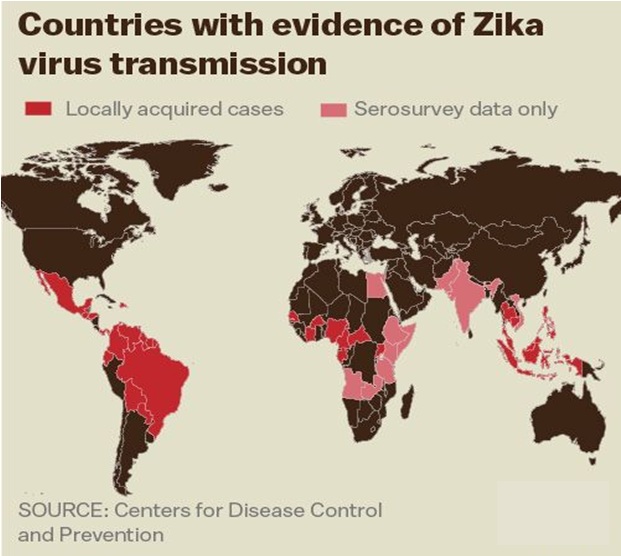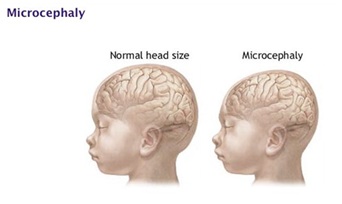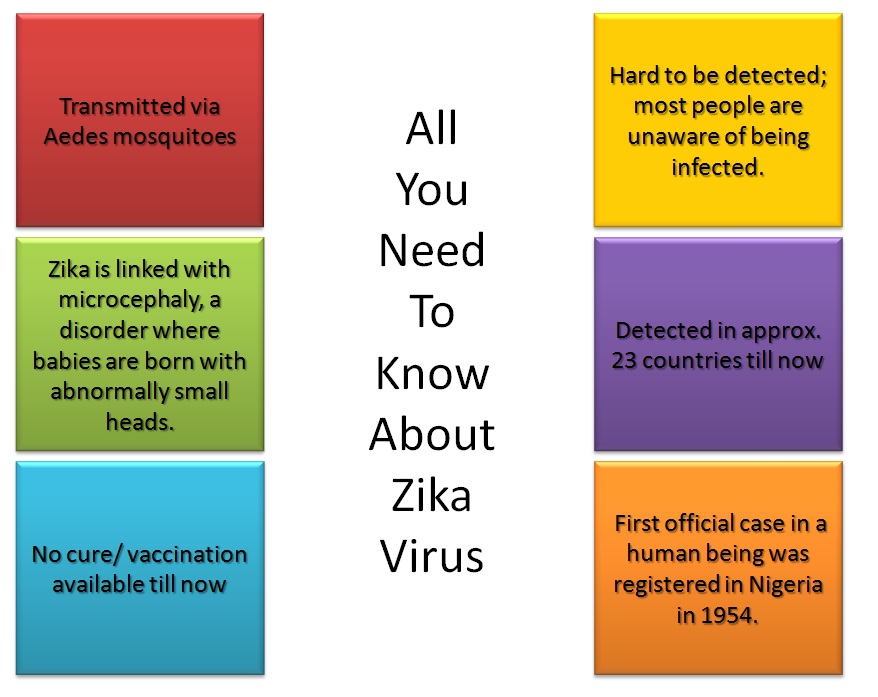In May 2015, Brazil reported the first case of Zika virus, post that 23 countries and territories of the American continent have reported cases of the virus. World Health Organization’s (WHO) regional office for the Americas said, “Aedes mosquitoes — the main vector for Zika transmission — are present in all the region’s countries except Canada and continental Chile.”
WHO Director-General Margaret Chan said, “The level of alarm is extremely high,” which is why they are considering declaring a public health emergency.

In a research paper, scientists said the outbreak might have been linked to major sporting events that brought together thousands of people across the globe to Brazil.
How can Zika affect you?
 Zika dominates concern and attention because of a frightening connection between the virus and microcephaly (a neurological disorder that results in babies being born with abnormally small heads). This causes severe developmental issues and sometimes death. This has governments and pregnant women across the affected regions worried. Reports of babies born with microcephaly have been rising sharply in Brazil as Zika spreads.
Zika dominates concern and attention because of a frightening connection between the virus and microcephaly (a neurological disorder that results in babies being born with abnormally small heads). This causes severe developmental issues and sometimes death. This has governments and pregnant women across the affected regions worried. Reports of babies born with microcephaly have been rising sharply in Brazil as Zika spreads.
Since November 2015, Brazil has seen 4,180 suspected cases of microcephaly in babies born to women who were infected with Zika virus during their pregnancies, while 270 confirmed instances of children born with microcephaly since October 2015. To put that in perspective, there were only 146 cases in 2014. So far, 51 babies have died.
Some infected patients have developed Guillain-Barré syndrome (a rapid-onset muscle weakness as a result of damage to the peripheral nervous system), which can kill or cause paralysis as the body’s immune system attacks the peripheral nervous system and their supporting structures.
The infection must be caught while a significant amount of virus is still circulating in the body, otherwise it’ll be missed. In fact, 80% of those infected never know they have the disease.
The symptoms include mild fever, headache, rash and possible pink eye, but only last a week, Genetic testing for the presence of Zika virus is the only surefire way to know if a mother has caught the infection, but regardless, doctors still struggle to spot the disease.
Symptoms
- About 1 in 5 people infected with Zika virus become ill (i.e., develop Zika).
- The most common symptoms of Zika are mild fever, rash, joint pain, or conjunctivitis (red eyes). Other common symptoms include muscle pain and headache. The incubation period (the time from exposure to symptoms) for Zika virus disease is not known, but is likely to be a few days to a week.
- Zika virus usually remains in the blood of an infected person for a few days but it can be rarely found longer in some people, reducing the odds of a genetic test being given while a patient is still ill.
- Severe disease requiring hospitalization is uncommon.
- Deaths are rare, except in infants suffering from microcephaly.
Diagnosis
- The symptoms of Zika are similar to those of dengue and chikungunya, diseases spread through the same mosquitoes that transmit Zika.
- See your healthcare provider if you develop the symptoms described above and have visited an area where Zika is found.
- If you have recently traveled, tell your healthcare provider when and where you traveled.
- Your healthcare provider may order blood tests to look for Zika or other similar viruses like dengue or chikungunya.

Treatment
- No vaccine or medications are available currently to prevent or treat Zika infections.
- Treat the symptoms:
- Get plenty of rest.
- Drink fluids to prevent dehydration.
- Take medicine such as acetaminophen to relieve fever and pain.
- Do not take aspirin and other non-steroidal anti-inflammatory drugs (NSAIDs), like ibuprofen and naproxen. Aspirin and NSAIDs should be avoided until dengue can be ruled out to reduce the risk of hemorrhage (bleeding). If you are taking medicine for another medical condition, talk to your healthcare provider before taking additional medication.
- If you have Zika, prevent mosquito bites for the first week of your illness.
- During the first week of infection, Zika virus can be found in the blood and passed from an infected person to another mosquito through mosquito bites.
- An infected mosquito can then spread the virus to other people.
What Research is going on for the development of a treatment?
While researchers and scientists are rigorously working hard to create Zika vaccine, traditional mosquito control methods are being implemented such as spraying pesticides and emptying standing water receptacles where mosquitoes breed.
Another prevention effort is OX513A, a genetically modified male Aedesaegypti, dubbed by critics as the “mutant mosquito” or “Robo-Frankenstein mosquito.” The creation of British company Oxitec, OX513A is designed to stop the spread of Zika by passing along a gene that makes his offspring die. Since females only mate once, in theory this slows the growth of the population. Each OX513A carries a fluorescent marker, so he can be tracked by scientists.
In the short term, researchers agree that the Zika outbreak will peak at some point. “It is likely to burn itself out as people become exposed then immune,” said Ball. “But it is unlikely to disappear completely. In future, it will probably survive by causing sporadic outbreaks and by infecting people who haven’t been exposed to the virus, for example children.”
New Update: As on 3rd February 2016, Scientists at Bharat Biotech International Limited in Hyderabad, India say they have developed the world’s first vaccine against the Zika Virus. They say, in fact, that they have two. Although taking them through animal and human trials could be a long haul.
“On Zika, we are probably the first vaccine company in the world to file a vaccine candidate patent about nine months ago,” said Dr. Krishna Ella, Chairman and Managing Director, Bharat Biotech Ltd, reported NDTV.
Experts worldwide have appreciated Bharat Biotech’s foresight in working on a vaccine so far ahead on a neglected disease that has now taken global epidemic proportions.
So what can be done to halt its spread?
In an effort to contain the infection, Air Canada, WestJet, and other airlines have implemented new refund policies for pregnant women heading to Central and South America.The Centers for Disease Control and Prevention is asking OB-GYNs (OB: obstetrician; GYN: gynecologists) to review fetal ultrasounds and do maternal testing for any pregnant woman who has traveled to one of the 24 countries where Zika is currently active.
In the short term, controlling vector numbers is considered to be paramount by experts. Many approaches are being tested. For example, Brazil is involved in international trials of genetically modified mosquitoes developed by the British company Oxitec. These mosquitoes – males – are genetically engineered to cause the death of their offspring once they have mated with virus-carrying females. In trials in the south-eastern city of Piracicaba, the mosquito population fell by 90%, researchers have reported.
This technique sounds promising. However, Mike Turner, head of infection and immunobiology at the Welcome Trust. counseled caution. “Attacking the mosquito is a good idea but we have been attacking mosquitoes for decades now and they are still a major problem. And, yes, GM mosquitoes are under trial in several countries including Brazil but they are not yet ready for mass distribution. It is an open question if we can scale it up to the level we need in the near future.” In fact, health officials may be forced to return to older, more controversial techniques to control Aedesaegypti, including mass spraying with DDT, said Turner.
Such a move would be contentious. DDT is a highly effective insecticide but its use in the 1950s and 60s was linked to rises in cancer in humans and deaths of wildlife, particularly birds. Its use is now banned in many parts of the world.

